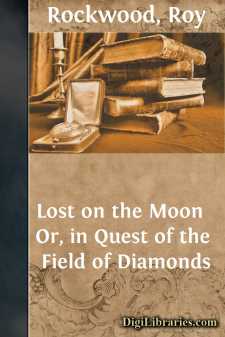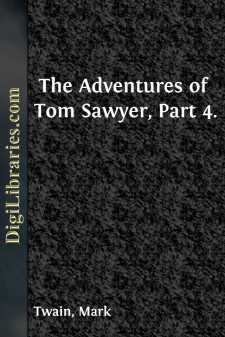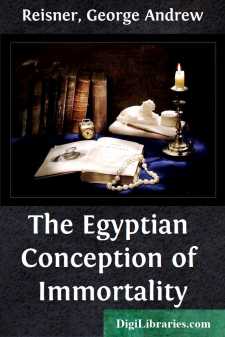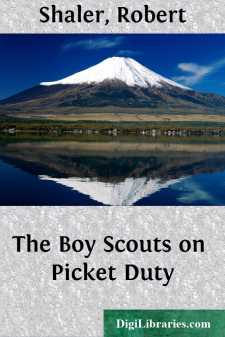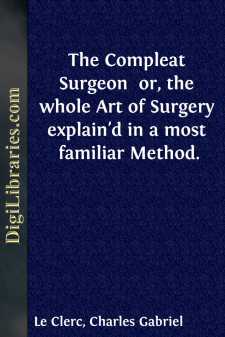Fiction
- Action & Adventure 180
- Biographical 15
- Christian 59
- Classics 6965
- Coming of Age 5
- Contemporary Women 3
- Erotica 8
- Espionage/Intrigue 12
- Fairy Tales, Folklore & Mythology 236
- Family Life 169
- Fantasy 117
- Gay 1
- General 596
- Ghost 32
- Historical 808
- Horror 43
- Humorous 160
- Jewish 25
- Legal 4
- Medical 22
- Mystery & Detective 315
- Political 49
- Psychological 41
- Religious 64
- Romance 159
- Sagas 11
- Science Fiction 730
- Sea Stories 113
- Short Stories (single author) 537
- Sports 10
- Suspense 1
- Technological 8
- Thrillers 2
- Urban Life 31
- Visionary & Metaphysical 1
- War & Military 173
- Westerns 199
Fiction Books
Sort by:
by:
George MacDonald
A HIDDEN LIFE. Proudly the youth, by manhood sudden crowned,Went walking by his horses to the plough,For the first time that morn. No soldier gayFeels at his side the throb of the gold hilt(Knowing the blue blade hides within its sheath,As lightning in the cloud) with more delight,When first he belts it on, than he that dayHeard still the clank of the plough-chains againstThe horses' harnessed...
more...
by:
Roy Rockwood
CHAPTER I A WONDERFUL STORY "Well, what do you think of it, Mark?" asked Jack Darrow, as he laid aside a portion of a newspaper, covered with strange printed characters. "Great; isn't it?" "You don't mean to tell me that you believe that preposterous story, do you, Jack?" And Mark Sampson looked across the table at his companion in some astonishment. "Oh, I...
more...
by:
Martinez
There are—and very probably will always be—some Terrestrials who can't, and for that matter don't want, to call their souls their own.... Xanabar lays across the Spiral Arm, a sprawling sphere of influence vast, mighty, solid at the core. Only the far-flung boundary shows the slight ebb and flow of contingent cultures that may win a system or two today and lose them back tomorrow or a...
more...
INTRODUCTION The following narrative, written over eighty years ago, and now at last given to the world in 1906, is remarkable in many respects. It is remarkable for its subject, for its style, and for its literary history. The subject—a deathbed scene—might seem at first sight to be a trite and common one. The mise-en-scène—the Field of Waterloo—alone however redeems it from such a charge;...
more...
by:
Frank Norris
A DEAL IN WHEAT I. THE BEAR—WHEAT AT SIXTY-TWO As Sam Lewiston backed the horse into the shafts of his backboard and began hitching the tugs to the whiffletree, his wife came out from the kitchen door of the house and drew near, and stood for some time at the horse's head, her arms folded and her apron rolled around them. For a long moment neither spoke. They had talked over the situation so...
more...
by:
Mark Twain
TOM'S mind was made up now. He was gloomy and desperate. He was a forsaken, friendless boy, he said; nobody loved him; when they found out what they had driven him to, perhaps they would be sorry; he had tried to do right and get along, but they would not let him; since nothing would do them but to be rid of him, let it be so; and let them blame HIM for the consequences—why shouldn't they?...
more...
I. INTRODUCTION Of the nations which have contributed to the direct stream of civilization, Egypt and Mesopotamia are at present believed to be the oldest. The chronological dispute as to the relative antiquity of the two countries is of minor importance; for while in Babylonia the historical material is almost entirely inscriptional, in Egypt we know the handicrafts, the weapons, the arts, and, to a...
more...
by:
Robert Shaler
CHAPTER I THE MYSTERIOUS STEAMER In the wake of an easterly squall the sloop Arrow, Lemuel Vinton master and owner, was making her way along the low coast, southward, from Snipe Point, one of the islands in Florida Bay about twelve miles northeast of Key West. With every sail closehauled and drawing until the bolt ropes creaked under the strain, the Arrow laid a fairly straight course toward Key West....
more...
C H A P. I. Who is a Surgeon? A Person skill'd in curing Diseases incident to Humane Bodies by a methodical Application of the Hand. What are the Qualifications of a good Surgeon in general? They are three in Number: viz. Skill in the Theory, Experience in the Practical part, and a gentle Application of the Hand. Why ought a Surgeon to be skilful? Because without a discerning Faculty he can...
more...
CHAPTER I PIRATE MISSILE Tense, excited men gazed spaceward from the ships and planes of the South Atlantic task force. Other watchers waited breathlessly in the control room of the ship Recoverer. Among these was Tom Swift Jr. "How close to earth is our Jupiter probe missile?" Bud Barclay asked Tom excitedly. The lanky blond youth beside him, in T shirt and slacks, shot a glance at the dials...
more...



